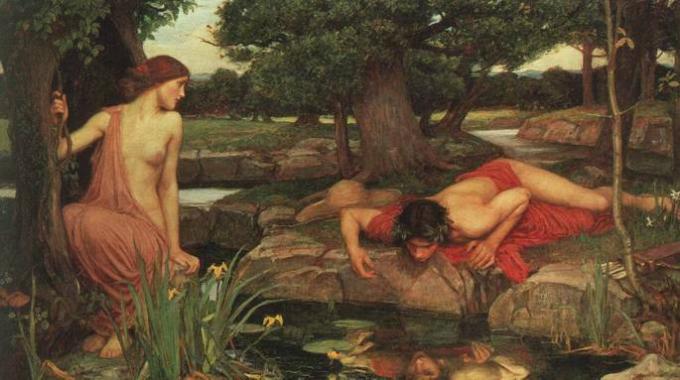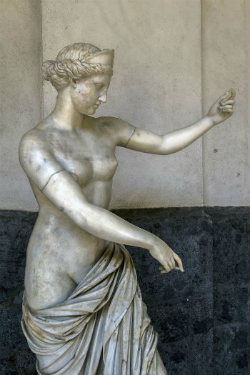Narcissus he is a character from Greek mythology, son of the river god Cephisus and the nymph Lyriope.
It represents a strong symbol of vanity. Being one of the most cited mythological characters in the fields of psychology, philosophy, music lyrics, fine arts and literature.
Myth Summary

Representation of Narcissus by the Italian painter Caravaggio
According to legend, Narcissus was born in the Greek region of Boethia. He was very handsome and when one of the oracles was born, called Tiresias, he said that Narcissus would be very attractive and that he would have a very long life. However, he shouldn't admire his beauty, or rather see his face, as it would curse his life
Besides having a stunning beauty, which attracted the attention of many people (men and women), Narcissus was arrogant and proud. And instead of falling in love with other people who admired him, he fell in love with his own image, seeing it reflected in a lake.
Narcissus and Echo

The beautiful nymph Echo was in love with Narcissus, however, her love was never returned, as Narcissus was attracted by her own image.
Read too: What is a myth?
the narcissus flower
Over-loving herself and despising the nymph Echo, she cast a spell on Narcissus, who was wasting away to death in the riverbed. With her death, the beautiful young man was transformed into a flower.
Narcissism
In psychology, narcissism is the name given to a concept developed by Sigmund Freud that determines the exacerbated love of an individual for himself and, above all, for his image.
The name of personality disorder is associated with the narcissus myth as it recovers its selfish essence of overvaluing itself. In other words, in psychology studies the narcissistic person is excessively concerned with himself and his image.
This uncontrolled vanity and excessive self-admiration can generate other problems in the individual, that usually needs to be admired and does not admit that its presence goes unnoticed in a certain group.



